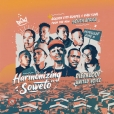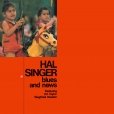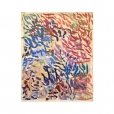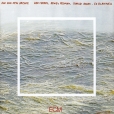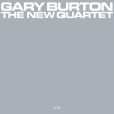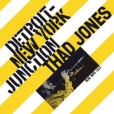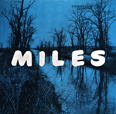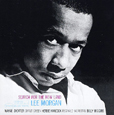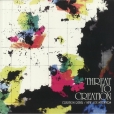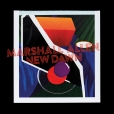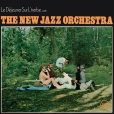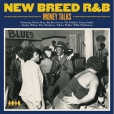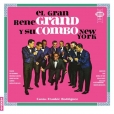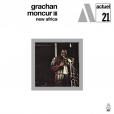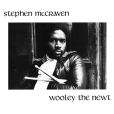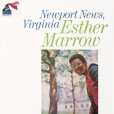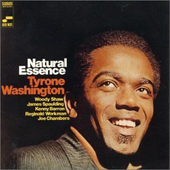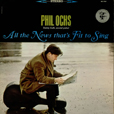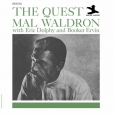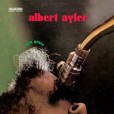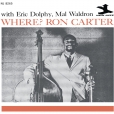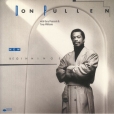Your basket is empty

Recorded for Futura in the spring of 1971 — soon after the veteran saxophonist arrived in Paris — with his spar Art Taylor and local musicians including Siegfried Kessler.
Singer came up through numerous swing bands, and then team-ups with bop luminaries like Don Byas and Roy Eldridge, before joining Duke Ellington’s orchestra.
A long look back, blues and news, keenly open to the new thing, this is superb, generous, upful jazz — with dashes of modal, r&b, swing, soul jazz — book-ended by tributes to his time with James Brown. It’s My Thing is JB by way of Cannonball; the limber, extended, new version of Malcolm X, with Kessler whipping up a storm, is simply unmissable.
“I get something out of listening to Coltrane, Shepp and Coleman; I’m really pleased that young players are trying to change things. If they go back to the roots and come up with something new, that’s fantastic.”
‘The debut album from this Berlin and Edinburgh-based duo is an intricate, robust, unique collection of songs, underpinned by intensely textured, interwoven guitars. It nods to Jim O’Rourke’s lounge numbers and the droll lyricism of Jonathan Richman; to Vini Reilly in its serpentine sparseness; to an unlikely confluence of Tortoise and Weather Report.
‘It opens in a flash of light, like a comet, with Mr. Wind-Up Bird. Passages of density rise up from stilled valleys. It’s easy to imagine the pair looking out over the rolling fields of their garden studio in East Lothian.
‘There is a similar crispness and precision to the percussion-work on A Certain Arrangement Of Atoms — where an old, slightly out of tune piano adds a few expressionist strokes to this pointillism, loosening the tension., till all we’re left with is the bass.
‘Although the album orbits around the pendulum sway of The Older I Get, it’s What Cats Think About that stands out most. It’s a Sun City Girls kind of curveball— warmly engaging, ramshackle, intimate, strange.’
Luminessence Series.
Luminessence Series.
‘Classic Vinyl Series.’
Adrian Sherwood marshals Bruce Smith, Keith Levene, Ari Up, and Crucial Tony; and George Oban, Eskimo Fox, and Style Scott, from African Head Charge.
Neil Ardley, Jack Bruce, Jon Hiseman, Dave Gelly, Jim Philip, Dick Heckstall-Smith, Barbara Thompson, Derek Wadsworth, John Mumford, Michael Gibbs, Tony Russell, Derek Watkins, Harry Beckett, Henry Lowther, Ian Carr, George Smith, Frank Ricotti…
‘The range, invention and depth evident on Le Dejeuner Sur L’Herbe outstrips most large ensemble jazz albums of the time; at times muscular and powerful, at others delicate and sensitive, the interplay of the musicians, arrangements and compositions make for a stand-out recording that bristles with confidence and energy.’
This expert drummer spent long stints with Archie Shepp and Sam Rivers; and he’s played with scores of other jazz greats, like Mal Waldron, Charles Tolliver, Yusef Lateef, Billy Harper, David Murray, and so on. He toured Europe with Marion Brown in 1977 — recording La Placita live in Willisau — and the following year cut Wooley The Newt for the saxophonist’s Sweet Earth label. His son Makaya sampled it recently on We’re New Again, his Gil Scott-Heron rework.
Free, grooving, spiritual jazz. Check it out.
TW’s first Blue Note session was The Jody Grind. His debut as leader, at 23, Natural Essence is a winning mid-sixties set of his own compositions. Post-Trane dancers, jams; some lovely tunes. Woody Shaw, too.
Thrilling, angular hard bop, impatiently itching itself open to the new thing.
Dolphy plays b-flat clarinet and alto; Ron Carter plays cello. Booker Ervin is rawly eloquent as per. The seven compositions are all by Waldron, who centres proceedings with inimitable brilliance.
Feelingly recorded by Van Gelder in the summer of 1961, in the same few weeks as Ron Carter’s Where.
In this iteration — all-analogue remastering from the master-tapes, tip-on sleeve, first-class pressing — it’s a must.
Slammed at the time as a sell-out, and what a joke that is. Brimming with raw physical emotion, but reaching out — in the revolutionary year of 1968 — to soul, rock and gospel.
Also the blues. When he was still at Cleveland High School, Albert spent two summers touring with none other than Little Walter. “The manner of living was quite different for me — drinking real heavy and playing real hard. We’d travel all day, finally arrive, take out our horns and play.”
